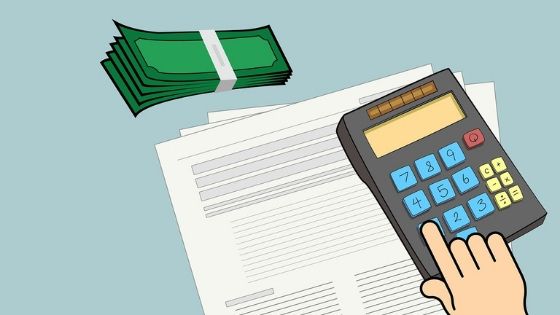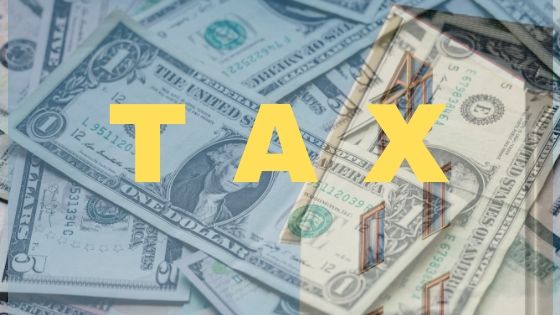There are many steps and fees involved in selling a home. You have to list your house for sale on the market, go through showings, and finally find a buyer who makes you an attractive offer.
Before you ever take any of those steps, it’s wise to make yourself aware of what your tax obligations will be on the sale of your home. Such a large transaction will have taxes to be taken care of.
Of course, the state of Texas can only cut you so many breaks. You still have federal taxes to be concerned about. When you sell your property, if you have made money from the sale, you will need to look at how much and possibly pay the capital gains tax to the IRS
What is The Capital Gains Tax?
If you bought a home in 1995 and sold it in 2019, and you made home improvements and the market was nice to you, you may find yourself in a situation where you are selling your home for a great deal more than the original purchase price.
The difference between the original purchase price that you bought the home at and the purchase price when you sold the home is known as your capital gains.

The IRS then imposes a tax percentage on the amount of money you gained.
The capital gains tax applies to a variety of investments. It comes into play for things like stocks and bonds. It also comes up for high-priced assets like cars, boats, planes, and real estate. Anything you sell and make a large gain on could be subject to the capital gains tax.
How to Determine Your Capital Gain
Take the current purchase price you are selling your home for and subtract the amount you originally purchased the home for. This is the amount you have gained from your investment.
Now collect any and all receipts you have for home improvement you did during the time you owned this home. The only home improvements you can count are the ones you have receipts for, so be careful about that.
Subtract the total amount you can prove you spent on home improvements from your gain.
You can also subtract commissions you paid at the time of sale.
Now you have the total amount of capital gains. You may need to pay taxes on this, unless you qualify for an exemption that could decrease this total.
You Probably Qualify For An Exemption
Yes, there are exemptions that could make the capital gains tax unnecessary for you to pay, or at least greatly decrease your tax obligation.

The exemption means that you are not responsible for paying taxes for $250,000 of the amount you gained from the investment. So if you gained $300,000, then you would be obligated to pay taxes on $50,000 of the amount you gained instead of the full $300,000. This decreases your taxes by a lot.
But first, you have to qualify for the exemption.
So, there are a few different boxes you need to check.
First, you need to have owned the property for two years of the prior five years.
The property needed to be your primary residence. If this was a vacation rental, an investment property that you were fixing up to sell, or a second home for your family, then, unfortunately, it doesn’t qualify for the exemption.
You also need to have lived on the property for at least two full years of the last five years. There are exceptions to this. If you are in the military, if you are in the intelligence community, or if you are disabled, then you are exempt from this rule and can still qualify for the exemption even if you didn’t live in the property for two full years.
You won’t qualify for the exemption if you qualified for the exemption on another property in the past five years. So, if in the previous five years you sold another property that had substantial financial gains and you used the exemption to decrease your tax obligations on that sale, you won’t be able to use the exemption on this sale.
There are some exceptions where you may be able to receive a partial exemption, depending on the circumstances of the sale and the amount of time that has passed. You will want to talk to a tax accountant to see what options may be available in your situation.
Common Ways To Qualify For the Exemption
If you don’t currently qualify for the exemption but want to, there are two common ways to make that happen.
Another common way to temporarily avoid the capital gains tax is to make a like-kind exchange. This is where you exchange an investment property for another one. It’s also called a 1031 transaction. You’ll need to use a tax accountant or tax lawyer to be sure the exchange is handled correctly to defer the tax.
Note that swapping investments like this does not absolve you of your tax obligation, it simply puts it off into the future. When you eventually sell the property and pull your money from the real estate market, you will need to pay the capital gains tax.
The sale price may change from year to year and there could be other factors that affect how much you eventually pay. It is wise to discuss this option with an accountant before you make a decision on this.
Always Discuss Your Taxes With a Professional
In order to save the most money on your taxes and make the most of your investments, it’s always a wise plan to discuss your taxes with a professional.
Even if you normally handle them yourself just fine, during a year where you sell your home there will be many things you will need to handle on your taxes that you may never have seen before or will ever see again.
A tax professional sees them every day and knows what may be able to save you money.

Have Questions? Ask Rene!




